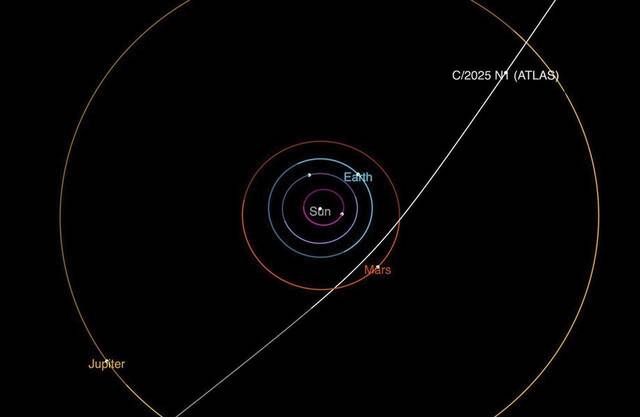CAPE CANAVERAL, Fla. — NASA has discovered an interstellar comet that’s wandered into our backyard.
The space agency spotted the quick-moving object with the sky-surveying Atlas telescope in Chile earlier this week, and confirmed it was a comet from another star system. It’s officially the third known interstellar object to pass through our solar system and poses no threat to Earth.
The newest visitor is 416 million miles from the sun, out near Jupiter. NASA said the comet will make its closest approach to the sun in October, scooting between the orbits of Mars and Earth — but closer to the red planet than us at a safe 150 million miles away.
Astronomers around the world are monitoring the comet — an icy snowball officially designated 3I/Atlas — to determine its size and shape. It should be visible by telescopes through September, before it gets too close to the sun, and reappear in December on the other side of the sun.
The first interstellar visitor observed from Earth was Oumuamua, Hawaiian for scout, in honor of the observatory in Hawaii that discovered it in 2017. Classified at first as an asteroid, the elongated Oumuamua has since showed signs of being a comet.
The second object confirmed to have strayed from another star system into our own — 21/Borisov — was discovered in 2019 by a Crimean amateur astronomer with that name. It, too, is believed to be a comet.








